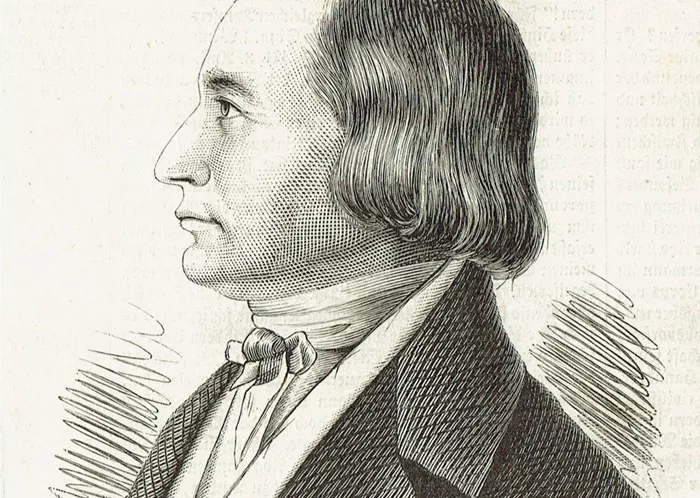Johann Peter Eckermann, a significant 19th Century German poet, is often remembered more for his association with Johann Wolfgang von Goethe than for his own poetic contributions. However, his role in German poetry and literary history extends beyond being Goethe’s confidant. His poetry and literary insights provide a valuable perspective on the intellectual and artistic climate of his time. This article examines Eckermann’s contributions to German poetry, comparing him with other poets of the period and exploring his influence on 19th-century literary culture.
Early Life and Literary Development
Born in 1792 in Lower Saxony, Johann Peter Eckermann grew up in a modest environment. Despite economic hardships, he displayed a keen interest in literature from an early age. His intellectual pursuits led him to military service during the Napoleonic Wars, but his passion for poetry remained undiminished. He later studied law but found his true calling in literature and philosophy.
Eckermann’s admiration for Goethe led him to seek the esteemed poet’s guidance. In 1823, he moved to Weimar and became Goethe’s close associate. This relationship significantly influenced his literary career, allowing him access to the intellectual circles of German poetry. While his poetry never achieved the widespread recognition of contemporaries like Heinrich Heine or Eduard Mörike, his contributions to German literature remain noteworthy.
Eckermann’s Poetry and Literary Style
As a 19th Century German poet, Eckermann’s works reflect the Romantic and Classical traditions that dominated German poetry during his lifetime. His poetic style combines philosophical introspection with lyrical elegance. While his oeuvre is not as extensive as those of Goethe or Schiller, his poems exhibit a deep appreciation for nature, human emotions, and existential themes.
Eckermann’s poetry, though lesser known, embodies the spirit of German poetry in the early 19th century. His works often focus on themes of individual contemplation and the search for meaning. His stylistic approach, influenced by Goethe, integrates simplicity with profound thought, a hallmark of the Weimar Classicism tradition.
Eckermann’s Contribution to German Poetry and Literary Criticism
Despite his poetic endeavors, Eckermann’s most significant literary contribution remains his role in preserving and documenting Goethe’s thoughts. His seminal work, Conversations with Goethe, published in multiple volumes between 1836 and 1848, provides invaluable insights into Goethe’s literary philosophy and the broader landscape of 19th-century German poetry.
This work, though not poetry itself, serves as a crucial text for understanding the intellectual currents that shaped German poetry. Through meticulous documentation, Eckermann ensured that Goethe’s reflections on literature, nature, and philosophy would influence future generations of poets and scholars. His writing captures the essence of German literary Romanticism and Classicism, making his contribution indispensable to literary history.
Comparison with Contemporary German Poets
To appreciate Eckermann’s place in German poetry, it is useful to compare him with other poets of the 19th century.
Heinrich Heine (1797–1856): Heine, a contemporary of Eckermann, was a leading figure in German Romanticism. Unlike Eckermann, who maintained a more classical style, Heine’s poetry embraced irony, political critique, and lyrical beauty. His Buch der Lieder remains one of the most influential works of 19th-century German poetry.
Eduard Mörike (1804–1875): Mörike’s poetry exemplifies the transition between Romanticism and Realism. His works often focus on everyday experiences, nature, and human emotions. While Eckermann’s poetry is more philosophical, Mörike’s works exhibit a delicate blend of realism and lyricism.
Friedrich Rückert (1788–1866): Rückert, known for his mastery of poetic form, contributed significantly to German poetry, particularly in the realm of Oriental-inspired verse. Unlike Eckermann, whose poetry remained rooted in classical traditions, Rückert’s work expanded the thematic scope of 19th-century German poetry through translations and adaptations.
Despite these differences, Eckermann shares with these poets a commitment to exploring human thought, emotion, and artistic expression. His poetry, while less celebrated, contributes to the broader literary discourse of his time.
Eckermann’s Legacy and Influence
Although Eckermann is not among the most frequently cited 19th Century German poets, his influence on German poetry and literary thought is undeniable. His Conversations with Goethe continues to serve as a primary source for scholars studying Goethe’s literary theories. Through his documentation of Goethe’s reflections, Eckermann played a crucial role in preserving and interpreting the intellectual traditions of German literature.
His own poetry, though overshadowed by his prose work, deserves recognition for its stylistic elegance and philosophical depth. His writings reflect a deep engagement with the poetic traditions of the time, making him an essential, albeit underappreciated, figure in 19th-century German poetry.
Conclusion
Johann Peter Eckermann’s literary contributions extend beyond his role as Goethe’s confidant. As a 19th Century German poet, he contributed to German poetry through his own verse and through his preservation of Goethe’s literary insights. While his poetry remains in the shadow of more prominent contemporaries, his work in literary criticism and documentation cements his place in literary history. His dedication to German literature, both as a poet and as a chronicler of Goethe’s thoughts, ensures his enduring legacy in the study of German poetry.

